Last week, the Pear Symposium 2023 was held in Stellenbosch, South Africa. An attentive participant, Kris Wouters of the Belgian Fruithandel Wouters, was especially interested in the Piqaboo pear. Wouters is the exclusive distributor of these in the Benelux. "It's a variety that one is sure to get high prices for in Asia, making it interesting for many," Kris begins.
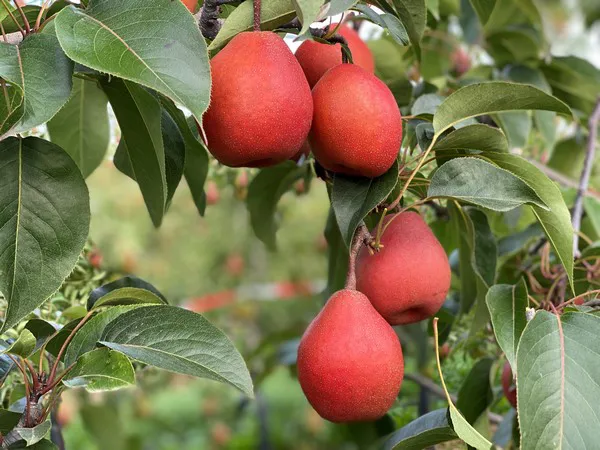
Piqaboo originated in New Zealand and is gradually finding its way into other markets, including Europe. "The first trees were planted in New Zealand about ten years ago, and there are now about 70 hectares. They also introduced this red pear to the Asian market then, where it was immediately popular. Following New Zealand's lead, other parts of the world are now trying to capitalize on this relatively new variety."
Countries like South Africa. The Piqaboo is also slowly gaining popularity in the Benelux. "This year, their quality was excellent. We've sold all our stock. The best quality goes to Vietnam, where they want perfect fruit. So, we want to sell the slightly-flawed Class 1.5 pears in the Benelux and to, say, German supermarkets. Volumes are still very limited, but we managed to sell all the pears we got to several customers in Belgium and, this season, in England as well," Kris explains.
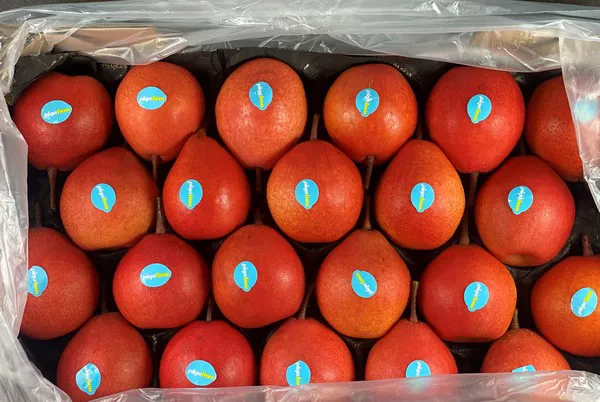
"We have the advantage that our season differs from New Zealand, which lets us deliver these pears before the Chinese New Year. In China, they pay even more for specialty products around that time. New Zealand can only begin harvesting in late February. For us, it's ideal to start delivering as early as early January."
"These pears are also popular in South Africa, but that country's climate is actually too hot. Piqaboos don't like high temperatures; they don't color well. They're testing growing these in four different places with different climates, but it's not going to be easy. As far as we know, northern Europe's climate seems to be most suitable," continues Kris.
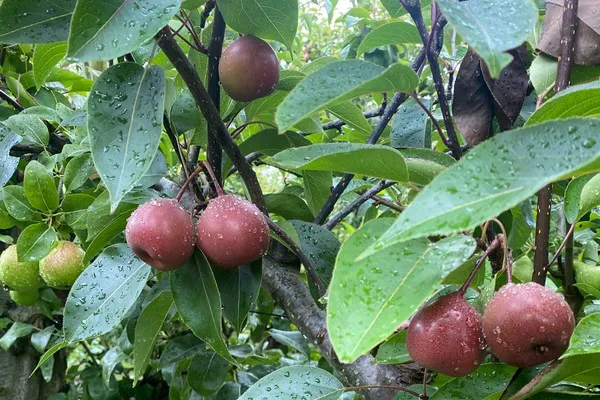
Its cultivation, by the way, is extremely difficult, he adds. "It's a very labor-intensive, risky, costly crop. What really only makes it interesting is that we've discovered we can sell these pears at such high prices. It would make no economic sense to grow these at normal prices. Yet, Piqaboos can bear fruit, literally and figuratively."
"Their structure is unfamiliar to Europeans. Bite into it, and you wouldn't think it's a pear. However, people in countries like China and Vietnam are absolutely wild about them. We'll eventually slowly roll these pears out, and I'm sure these will do well in Europe too," Wouters says.
QTee® of interest to South Africa
QTee® is another variety that caught his attention in South Africa. These pears are better known in Northern Europe and sell well on that market. "Last season's sales were great. They sold easily, which in these crisis times isn't a given for 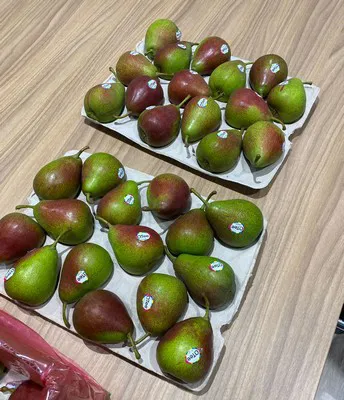 pricier products." This variety is garnering increasing attention In South Africa.
pricier products." This variety is garnering increasing attention In South Africa.
"That country specializes in blushed pears, with Forelle being the main variety. That's similar to the Qtee® but is what we call a winter pear. They're harvested quite late and have to be stored for at least six weeks to develop a good flavor," Kris continues.
"You can pick Qtee® pears six weeks before the Forelles, so they're on the market up to 12 weeks ahead of Forelles. Qtee® pears are a very interesting option for the South Africans because they've built a true market around smooth types of pears. Their own market's quite small."
"But their pears go all over the world: whether it's Asia, the Middle East, Russia, or the European market. They have, thus, planted some 300 hectares of Qtee®. Last week, we visited packing plants and saw what they looked like, and they certainly didn't disappoint," Kris concludes.
Fruithandel Wouters, too, will be at Fruit Logistica, Hall 27, stand A-27.
For more information: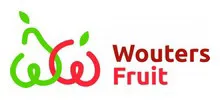 Kris Wouters
Kris Wouters
Fruithandel Wouters
21 Kasteellaan
3454, Rummen, Belgium
Tel: +32 (0) 475 283 696
Email: [email protected]
Website: www.woutersfruit.be
